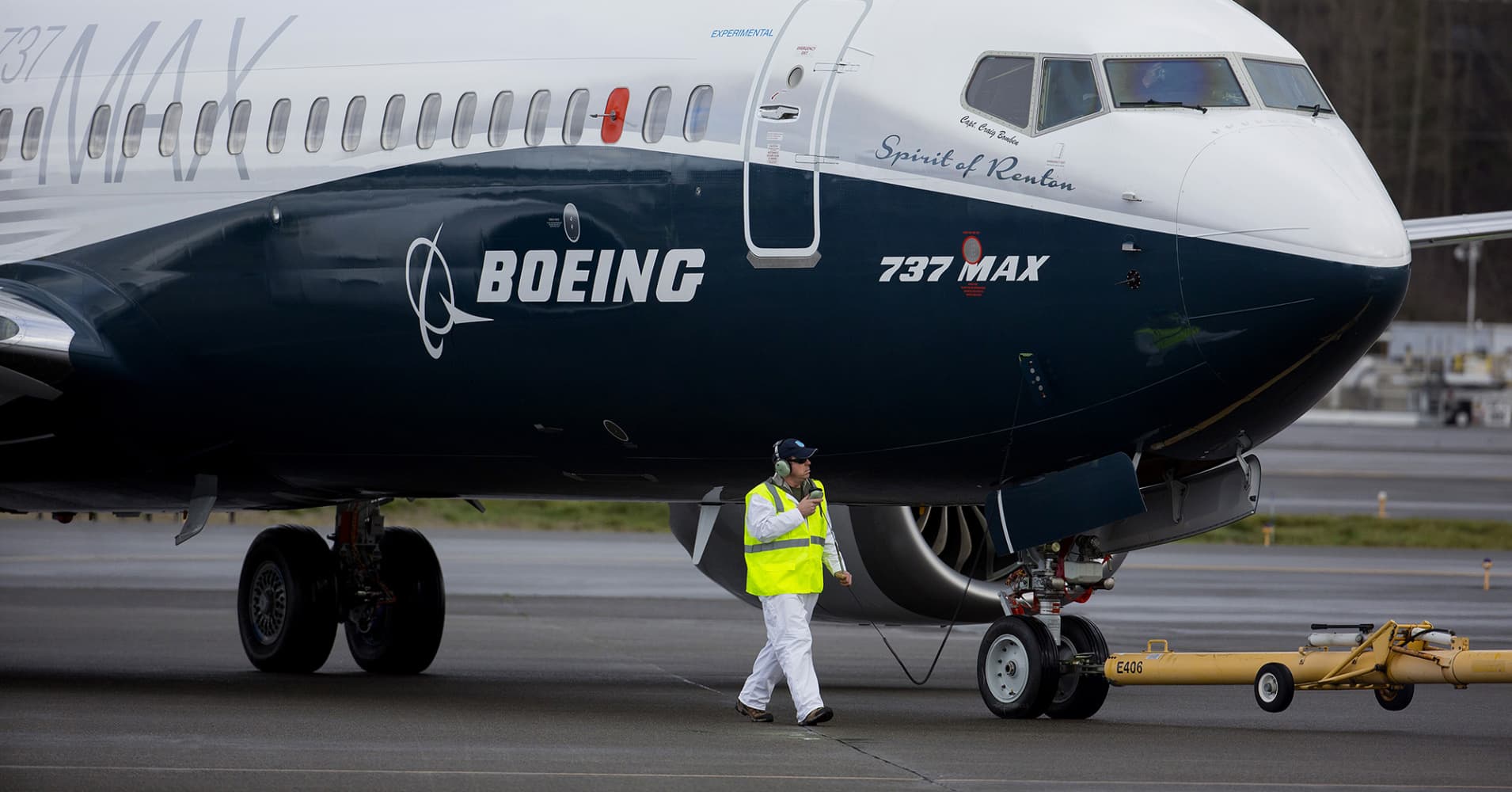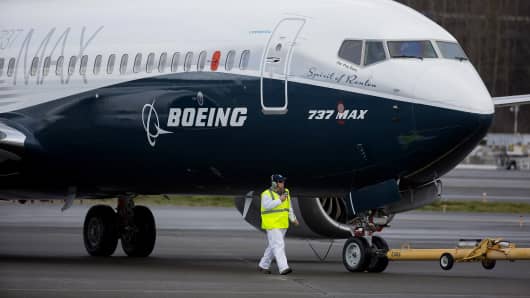A production halt of Boeing's 737 Max jets could be felt well beyond the aerospace giant's quarterly profits, according to J.P. Morgan.
Michael Feroli, the bank's chief U.S. economist, said in a note to clients that annualized U.S. GDP could fall by 0.6 percentage points if production of the beleaguered airplane is halted temporarily.
"This year sales of the 737 were projected to total about $35 billion, with about 90% accounted for by the MAX model, or about one-quarter of total domestic aircraft production," Feroli said.
Boeing is still building the 737 Max, but deliveries of the jet have been halted while U.S. officials conduct an investigation into the aircraft's approval. Earlier this month, a 737 Max jet operated by Ethiopian Airlines crashed, marking the second disaster involving the plane in less than six months. The plane was certified to fly by the Federal Aviation Administration.
After the second crash, several airlines and countries grounded all flights that involve the plane. Boeing shares are down sharply since then, falling more than 11 percent.
"Boeing is continuing to produce the plane, with most, if not all of the final product, being put into inventory pending the completion of the investigation. In principle, this means that GDP should be largely unaffected for now," Feroli said.
However, CNBC learned through a source that Boeing sent employees an email about slowing work at one of the company's plants next week. The email said: "For three days next week we will focus on completing work that was previously delayed. While the production lines will not pulse forward on those days, work will continue in every area inside and outside the factory. We are using buffer days already built into schedule to help us recover from the impact of the winter storms and supplier delays."
— CNBC's Phil LeBeau contributed to this report.




